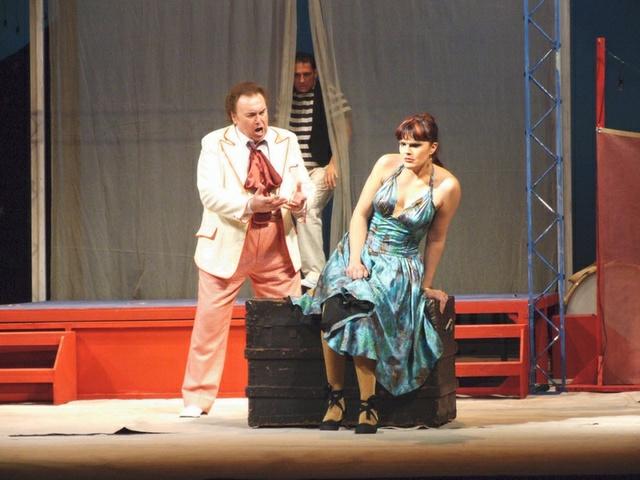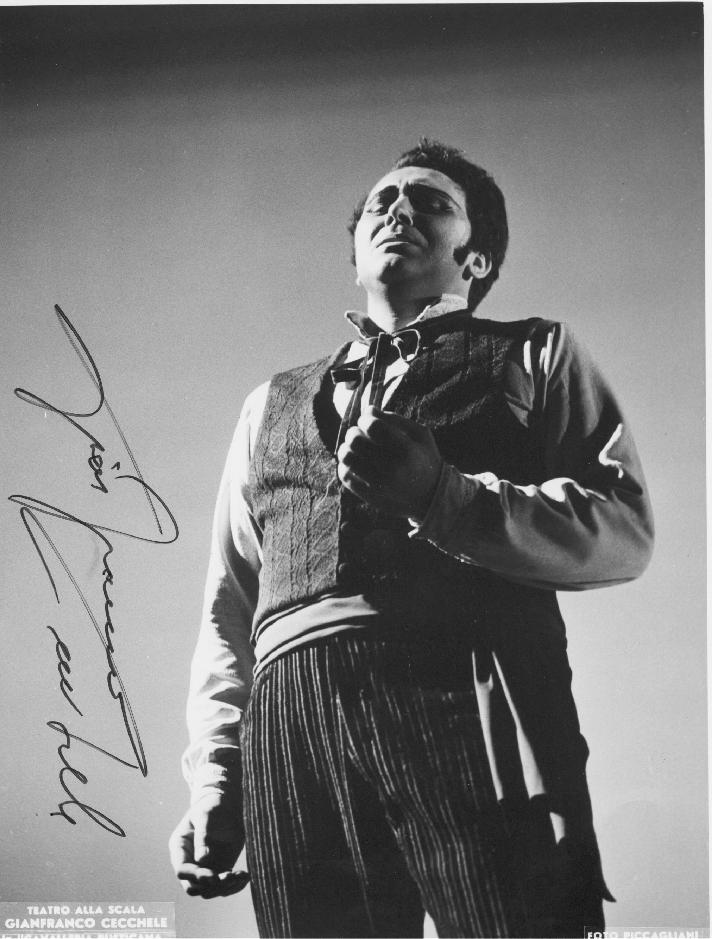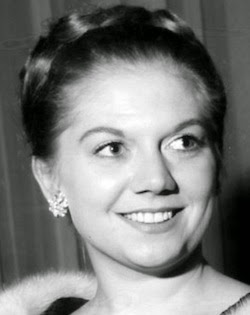Cecchele's early ambitions to become a boxer were crushed by his father's opposition. In
1962, he started studying voice with Marcello Del Monaco – for not quite two years, then he made his debut at the Teatro
Bellini in Catania (in La zolfara by Mulè) on 5 March 1964.
A meteoric rise ensued: the same year, he sang already at La Scala (Adriano in Rienzi!), in Rome and at La Fenice; in
1965, at the Paris Opéra (Pollione), in Parma and Naples, and in Rome and at La Scala again. In 1966, he was at the
Vienna Staatsoper (Radamès, Cavaradossi and Alvaro). He sang a lot at La Scala and in Naples in those years, made his US
debut in Chicago, returned to Rome, and sang at the Arena di Verona and the Sferisterio in Macerata. Recordings from that
period reveal a good strong voice and powerful singing, though the musicality leaves a lot to be desired.
But his insufficient training had consequences very soon. After several cases of tonsillitis, he needed tonsillectomy in 1969;
after the surgery, he had to re-learn singing. In 1970, he was back at La Scala and sang in São Paulo, Florence and
Munich. Throughout the 1970s, he returned to La Scala almost every season, sang a lot in Rome, Trieste and Vienna, made his
debuts in Monte Carlo and at Covent Garden (both in 1976) and in Tokyo. But the voice was not what it had been before his
tonsil problems. In 1980, his Scala career came to a scandalous end as the management uninvited him from an already signed
contract, invoking vocal problems as the reason. Cecchele went to court for breach of contract and reputational damage
– and won, albeit only twelve years later.
Well, the Scala management of 1980 certainly broke Cecchele's contract, but – reputational damage? I heard Cecchele
only once, as Canio in 1986 at the Vienna Staatsoper. His singing was unspeakably awful: helpless, hopeless, pathetic. I have
rarely heard anyone sing so miserably, and never anyone worse. The whole thing got a tragicomical touch by a handful of
die-hard Cecchele fans who celebrated him as if he had invented classical singing on that very evening. I didn't know much
about Cecchele at the time, and was convinced he must be 75 or so years old. Of course, I was wrong, and he was not even 50...
And he continued singing for another 20 years on stage, and until 2012 in concert!!
Reference 1 with an excellent
chronology of Cecchele's career; reference 2: Il Corriere della Sera, 6 December 1992


